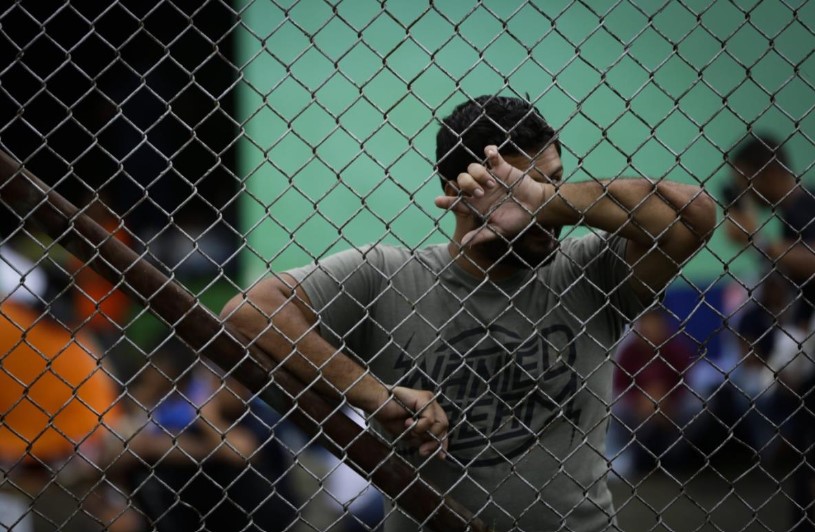The Ministry of the Interior is preparing an amendment to the Foreigners Act, which will significantly loosen the conditions required for foreigners to be able to live in Slovenia. The government’s proposal has caused an uproar among municipalities, especially those that already have a significant proportion of foreigners among their residents. Complaints have been heard from both Kranj and Velenje. Meanwhile, the Government of Robert Golob is not listening to the arguments of the local communities. The draft amendment to the Foreigners Act, as well as the amendment to the Employment, Self-employment and Work of Foreigners Act, will be adopted under the urgent procedure, which is reserved for cases of war, natural disasters and irreversible consequences for democracy.
The previous government, led by Janez Janša, tightened the conditions for foreigners who want to live in Slovenia. The condition for extending a temporary residence permit for family reunification for a third-country national was the knowledge of the language at the entry level (A1), while the condition for issuing a permanent residence permit to a third-country national (if he or she has resided in the country continuously for 5 years) was the knowledge of the Slovenian language at the basic level (A2). The co-financing rate for Slovenian language learning programmes has been newly set at 50 percent. For family reunification in Slovenia, a condition was introduced that the foreigner must have been legally residing in Slovenia for at least two years. A condition was also introduced that the evidence used to prove the foreigner’s ability to earn a living is the same when obtaining a residence permit as when obtaining the first permit. In addition to other amendments, the legal basis for the introduction of security reinforcement of biometric residence permits was also provided, in order to reduce the possibility of forgery and misuse of the permits.
However, the government of Robert Golob has decided to reverse the changes that were introduced. Foreigners applying for an extension of a temporary residence permit for family reunification will now not be required to know the Slovenian language, even at the entry level. The government also intends to reintroduce free funding for courses for all categories of foreigners. The Golob government also intends to make physical entry into the country easier. The Ministry wants to help foreigners who do not need a visa to enter the country, so that while the bureaucratic mills are grinding and their requests are being processed, they can enter the country under a temporary residence permit.
Why do Rakovec and others oppose the changes?
The mayor of Kranj, Matjaž Rakovec, told the media outlet 24ur that municipalities are left to their own devices when it comes to managing the negative consequences of mass migration, as sectoral legislation is undefined. The problem is particularly pronounced in the health and education sectors. “We have sent several proposals to the Government of the Republic of Slovenia and the competent Ministry to make the conditions for immigration of foreigners stricter, because in Kranj and in some other municipalities across Slovenia, we are facing similar problems in kindergartens, primary schools, healthcare institutions, social services and in the integration of foreigners in general into our society and culture. We have advocated for stricter conditions regarding the length of stay in Slovenia in order to meet the conditions for family reunification, and to keep the condition of basic knowledge of the Slovenian language, which has been partially taken into account in the current legislation, and we have also proposed preparatory classes with Slovenian language lessons in primary schools in order to make it easier for the children to integrate into the regular school curriculum. We are therefore unpleasantly surprised by the proposal for an amendment to the Foreigners Act, which would relax the very conditions for knowledge of the Slovenian language, which the Government of the Republic of Slovenia is going to submit to the National Assembly for consideration and adoption under the urgent procedure,” Rakovec commented for 24ur.
The Kranj Mayor Rakovec also said: “We have had cases of an unusually large number of foreigners registering their temporary residence at a single address, of social assistance being used for a family that was only fictitiously registered at an address in the municipality but was in fact already in another EU country. The lack of knowledge of the Slovenian language brings great difficulties in communicating in personal health matters, especially for mothers, in integrating children into primary school, and in understanding Slovene society in general.”
The Mayor of Kranj then went on to explain at length that the municipality has received warnings that the associated members of the applicant’s family, who do not speak Slovenian, find it very difficult to be integrated into Slovenian society, have extremely low chances of finding a job, and as a result are condemned to social transfers which are a burden on them and on society: “The draft amendment to the Foreigners Act, prepared by the Ministry of the Interior, seems to be moving away from effective systemic solutions that would support similar conditions for the immigration of foreigners as those of other European Union countries with a long tradition of welcoming foreigners into their environments,” claims the Mayor of Kranj.
Velenje: changes to legislation will burden municipal and state budgets
The people of Velenje are also very concerned: “Due to the general economic situation today, we see that the number of applicants for social transfers is increasing, and therefore, we want to express our justified concern about the need to ensure sufficient funds in both the municipal budget and the budget of the Republic of Slovenia, if the periodic verification of the fulfilment of the condition of sufficient means of subsistence is abolished ex officio by the administrative unit for foreigners. We believe that such a change in the law would bring additional financial burdens to the municipal and national budgets,” Velenje told 24ur.
G. K.


